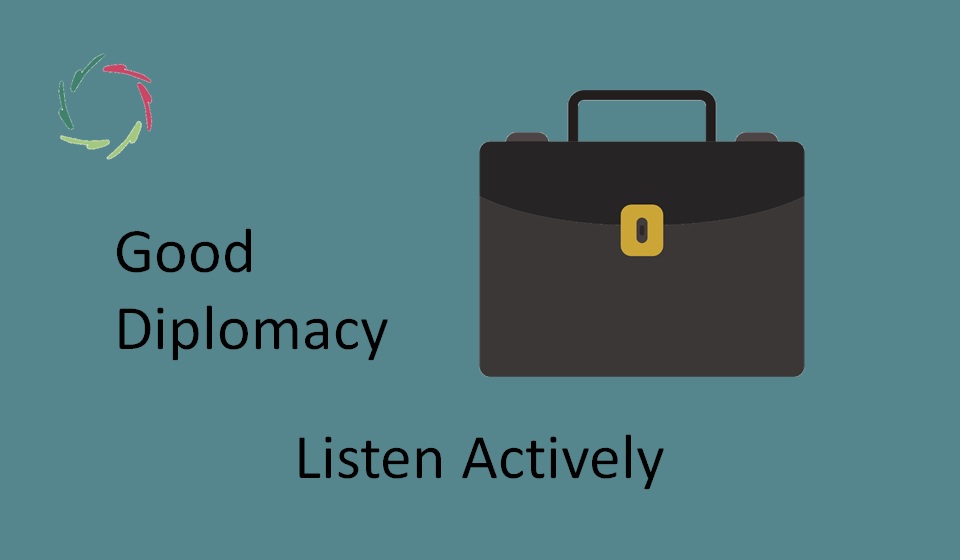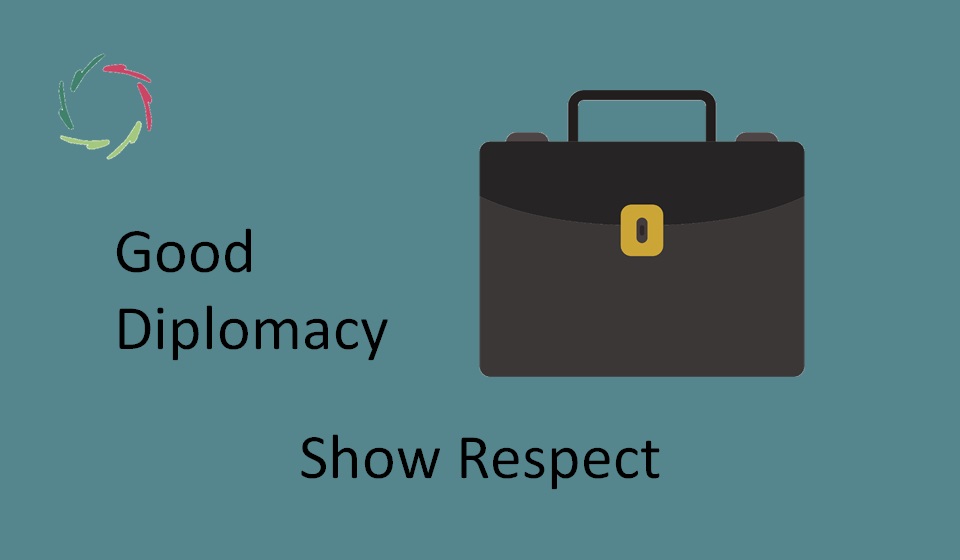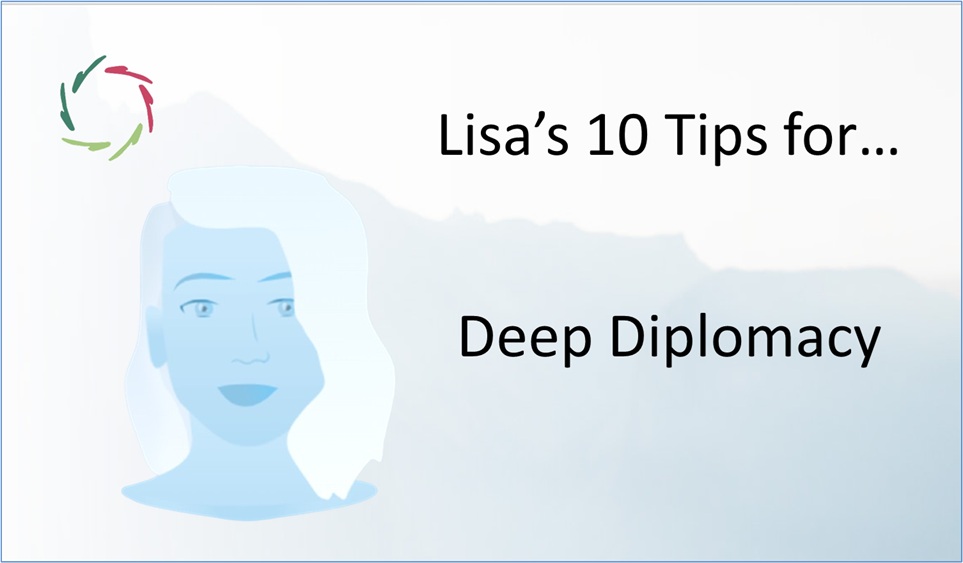Listen Actively: Prioritize Listening Over Speaking

By prioritizing active listening, diplomats and negotiators can create a more respectful and productive dialogue.
Active listening involves more than just hearing the words spoken; it requires fully engaging with the speaker to understand their message, emotions, and underlying concerns.
BEFORE TAKING THIS IN, PLEASE FIRST READ ‘TEN TIPS FOR GOOD DIPLOMACY’! This is the first tip of the series.
Key Aspects
Pay Full Attention
- Focus entirely on the speaker.
- Avoid distractions such as phones or side conversations.
- Maintain eye contact and nod to show engagement.
Show That You Are Listening
- Use body language, such as nodding and leaning slightly forward.
- Use verbal affirmations like “I see,” “I understand,” or “Go on.”
Reflect and Paraphrase
- Reflect on what the speaker has said by paraphrasing their points.
- For example, “So, you’re saying that the primary concern is…”
Ask Open-Ended Questions
- Encourage the speaker to elaborate.
- For example, “Can you explain more about how this impacts your position?”
Avoid Interrupting
- Let the speaker finish their thoughts before responding.
- Use pauses to consider your response carefully.
Clarify and Summarize
- Clarify any points you are unsure about.
- Summarize the key points to ensure understanding.
Examples
Negotiating a Trade Agreement: During a trade negotiation, one party expresses concerns about potential job losses in certain sectors. An active listener might respond
- “I understand that you are concerned about job losses in your manufacturing sector. Can you share more about the specific challenges you foresee?”
Resolving a Diplomatic Conflict: In a conflict resolution meeting, a representative from one country expresses frustration over perceived military threats. An active listener could say
- “It sounds like you feel threatened by our recent military exercises. Can you help me understand how these actions are perceived as threats?”
Community Diplomacy: During a community meeting about a new infrastructure project, local residents express concerns about environmental impacts. An active listener might respond
- “You’ve mentioned concerns about the environmental impact of this project. What specific aspects are you most worried about, and how can we address these in our planning?”


